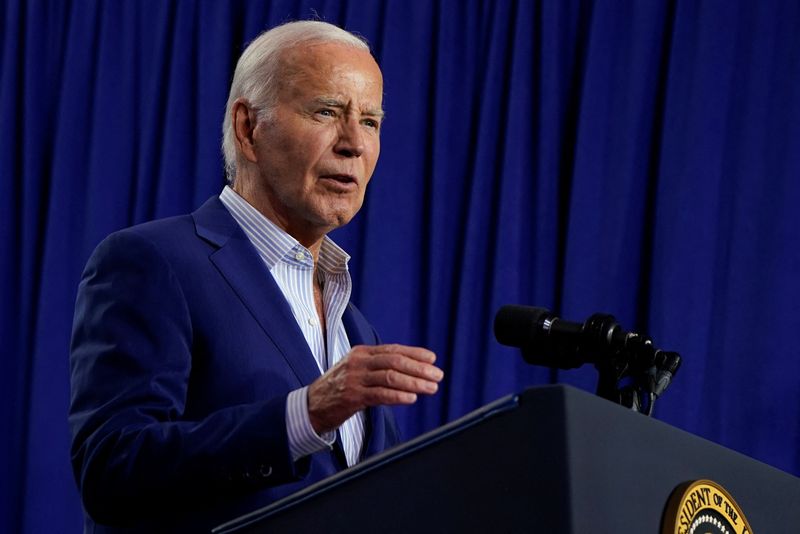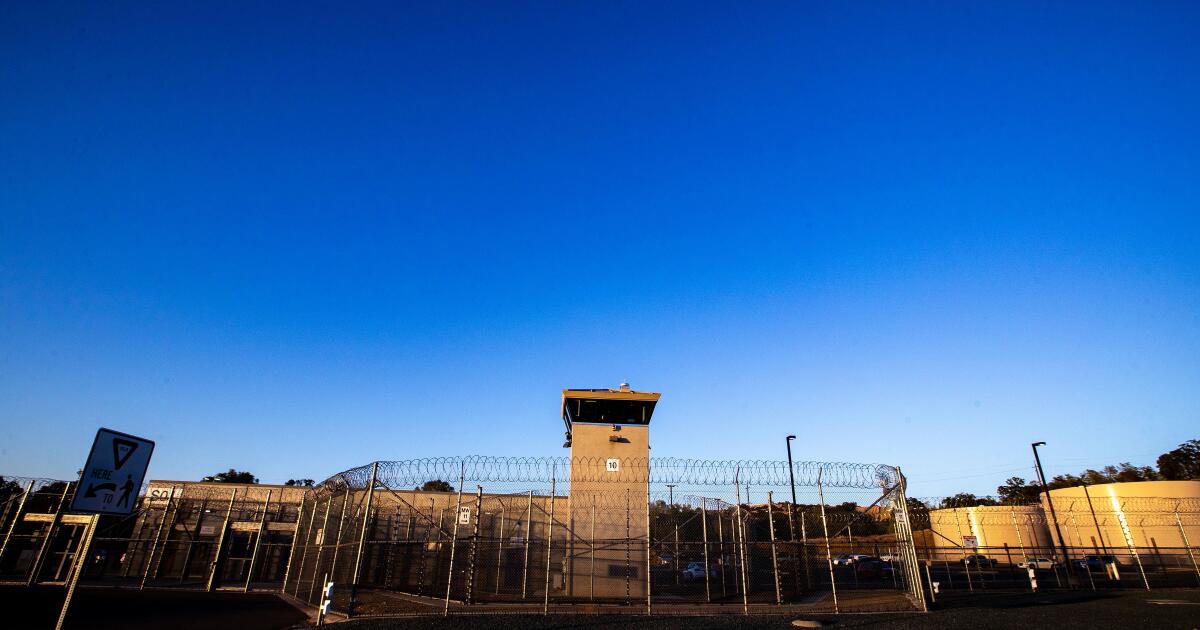Business
Russian soldiers returning home are sending crime higher


Russia has sent so many men to join its war in Ukraine that crime levels in the country fell soon after the invasion began. Now their return is starting to unleash a wave of offending.
Crimes committed by servicemen that aren’t linked to the war increased by more than 20% last year, according to data from Russia’s Supreme Court. While the overall numbers are still small and many returning servicemembers don’t go onto commit offenses, there was a jump in cases of violent crimes as well as thefts and drug-related transgressions.
The figures exclude crimes involving tens of thousands of convicts released from jail to join the war under a program set up by the late Wagner mercenary group leader Yevgeny Prigozhin. Those who survived six months at the front were able to gain a pardon from President Vladimir Putin and return to Russia as free men.
In prison, “they are treated like ‘we are nothing,’ then it all gets even worse at the front,” said Kazan-based sociologist Iskender Yasaveev. “The experience they return with is a trauma that will manifest itself for decades.”
Sociologists have long noted that crime levels often surge following the end of military conflicts, and researchers have looked at many possible causes for this from social disruption to trauma faced by soldiers. Russia is unlikely to buck that trend after Putin ordered the February 2022 invasion that triggered Europe’s largest conflict since World War II. The return of prisoners who fought for Wagner is offering an early signal of what may lie in store once hundreds of thousands of men brutalized by the fighting return to civilian life.
While lower-level crimes fell, the number of murders and sex offenses, particularly against children, hasn’t declined in the past two years. Indecent assault against minors surged by 62% compared to the prewar period, according to Bloomberg calculations based on Supreme Court data.
The return of Wagner recruits to Russia has proved a shock to residents of cities and villages who discover men they thought were serving long jail terms living among them. People convicted of murder, and even cannibalism, have been among those pardoned.
Before his death in a plane crash after he led an abortive mutiny against the Defense Ministry’s leadership in June last year, Prigozhin claimed 32,000 convicts he’d recruited had returned to Russia from the war.
Kremlin spokesman Dmitry Peskov responded to widespread public disquiet by telling reporters in November that criminals pardoned by Putin “atone with their blood for their crime on the battlefield.”
Still, a law that took effect in March quietly removed the right to a pardon after six months of service, forcing criminals who join up to remain in the military until the end of the war, like others drafted into the army.
Nevertheless they return, often by deserting. Crimes involving the military increased fourfold to 4,409 in 2023 compared to 2021, the Supreme Court data show.
One deserter, Artyom, said he fled after half his squad of assault troops were killed during four months in Ukraine. The 34-year-old, who asked not to be identified by his family name, joined the army to escape harsh treatment in the prison colony where he was serving a sentence for drug trafficking. Nobody told him the service was indefinite, he said.
The law that ended pardons also allows the Defense Ministry to enlist not only convicts but also people held in pre-trial detention. Russia Behind Bars, a prisoners’ rights group, estimates as many as 175,000 former prisoners in total were taken to fight on the battlefield.
A postwar surge in crime may cost Russia as much as 0.6% of its gross-domestic product, said Alex Isakov, Russia economist at Bloomberg Economics. Alongside the direct costs to life and property, the state will face higher spending on welfare and security, especially on police, he said.
“From the Franco-Prussian war to the Global War on Terror, crime rates fall early into a war and rise sharply after it. Russia is unlikely to find an escape from this pattern. Postwar crime costs may be as low as 0.2% of its gross domestic product if the conflict is settled in 2024 to as high as 0.6% GDP, if it continues for another five years and around 3 million Russians gain exposure to combat. The full cost of a postwar rise in crime is likely to prove considerably higher,” said Isakov.
Anxious to avoid a repeat of the September 2022 draft of 300,000 reservists that prompted a spike in public anxiety over the war, the Kremlin is relying instead on generous payments to persuade men to join the army. Contract soldiers are offered monthly payments of 204,000 rubles ($2,300) in addition to signing bonuses that can reach as much as 1 million rubles.
That’s helped contribute to a short-term decline in crime particularly in Russian provinces. The slide in recorded crimes was three times greater in areas with high recruitment into the army, compared with regions with only moderate levels, according to Bloomberg Economics estimates.
“Economic crimes such as theft and robbery, which are associated with poverty, have decreased because the war has poured money into the poorest regions and the poorest segments of the population,” says sociologist and crime researcher Ekaterina Khodzhaeva.
Russian courts dealt with almost 62,000 fewer cases last year than in 2021, and the number of convicts fell by 2%. Police numbers have also fallen in many regions, suggesting fewer were available to solve crimes, as people abandoned poorly paid jobs for more lucrative military service.
The Interior Minister Vladimir Kolokoltsev said in May there’s a shortfall of 152,000 officers across Russia, with one in four positions vacant in some regions.
That’s likely to add to the challenges facing the authorities in curbing crime as increasing numbers of convicts return from the war to civilian life.
“Like any other veteran, they are likely to have post-traumatic stress disorder,” said Anna Kuleshova, a sociologist at the Social Foresight Group. “That’s coupled with a previous experience of incarceration, all of which combine and can lead to difficulties with integrating into society.”
Business
UK polls point to a big Labour win. The party fears voter complacency

Labour leader Keir Starmer poses for photos as he visits the Vale Inn on June 27, 2024 in Macclesfield, United Kingdom. In the final week of campaigning, Labour outlined its plans to expand opportunities for young people.
Cameron Smith | Getty Images News | Getty Images
LONDON — There’s been one main narrative since the U.K.’s Conservative Prime Minister Rishi Sunak called a general election back in May — that the opposing Labour Party would win the vote with a landslide.
While voter polls may have differed in scale and methodology, the results have pointed in one direction, showing that the center-left Labour Party has around a 20-point lead on the Conservatives. Labour is on track to win around 40% of the vote while roughly 20% of the support is projected to go to the Tories, according to a Sky News poll tracker.
Reform UK, led by arch-Brexiteer Nigel Farage, is seen with 16% of the vote, after eating away at Tory support, while the Liberal Democrats are seen gaining around 11% and the Greens with 6%. The Scottish National Party is predicted to win 2.9% of the vote.
Labour candidates and leader Keir Starmer have been keen to play down the level of support that the party enjoys, fearing voter complacency and the appearance of “having it in the bag” — a stance that could prompt voter apathy and a lower turnout of supporters at the polls, or a backlash from Conservative-inclined sections of the electorate.
“The Labour Party wants to be able to be convince voters that it’s absolutely central that they turn out and vote, because otherwise the Tories will win, and the Tories are desperate for people to think that they have still got a chance, and therefore it’s worth turning up,” Britain’s top polling expert John Curtice told CNBC.
Question marks have risen in the past over the accuracy of British voter polls, with previous projections over or underestimating support for various political parties. The errors have often come about because of inadequate sampling or of factors that are harder to control, such as voters being “shy” when polled on which party they intended to support.
Labour Party leader Sir Keir Starmer speaks ahead of the U.K.’s general election on July 4, 2024.
Anthony Devlin | Getty Images News | Getty Images
This year, however, experts tend to agree that the polls show such a swing to Labour that, even if the scale of support were wrong, the overall result would be the same: a convincing win for the opposition party.
“My attitude is [that] a poll should be taken but not inhaled,” Curtice said wryly. “The point is, you shouldn’t be looking at them to provide you with pinpoint accuracy, they should give you a reasonable indication of the direction of travel.”
“It just so happens that because this is an election in which apparently one party is so far ahead, much as [it was] in 1997, the polls could be quite a bit out — but nobody will notice,” he noted, referencing the year when the Labour Party won a landslide against the Conservatives, ending the latter party’s then 18-year rule.
Labour ‘spin’?
The Labour Party itself is understandably keen to downplay the polls, with a spokesperson telling CNBC that the party doesn’t comment on projections, “as they vary and fluctuate.”
“Instead, we’re working hard to take our message of change to voters ahead of the only poll that matters, on 4 July,” the spokesperson stated.
On Monday, Keir Starmer said no vote should be taken for granted, asking his supporters to continue campaigning until polls closed on Thursday.
“The fight for change is for you, but change will only happen if you vote for it. That is the message we have to take to every doorstep these last few hours and days until 10 o’clock on Thursday night.”
“Nothing must be taken for granted, every vote has to be earned. The polls don’t predict the future, we have to get out there,” he told campaign supporters in Hitchin.
Labour leader Sir Keir Starmer during a visit to Hitchin, Hertfordshire, while on the General Election campaign trail. Picture date: Monday July 1, 2024.
Stefan Rousseau – Pa Images | Pa Images | Getty Images
Labour’s former campaign and communications directors, Alastair Campbell, one of the chief strategists behind the rebranding of the party in the 1990s as ‘New Labour’ ahead of its monumental election win in 1997, told CNBC that he doubts current voter polls.
“I get really worried about about the way that these election debates are now unfolding, virtually everything in the debate at the moment is about these opinion polls,” he told CNBC two weeks ago.
“Apart from a few postal votes, nobody’s voted yet. And I just do not for one second believe that the Conservatives are going to get virtually wiped out, I just don’t believe it,” he said.
“I just think there’s something going very, very wrong with these polls, I could be completely wrong, and it’s true that Labour have been consistently ahead. But I just wish that, in our election periods, we would talk less about polls and more about what the parties are saying.”

Polling expert Matt Beech, director of the Centre for British Politics at the University of Hull, said Campbell’s position was designed to persuade Labour-inclined voters to cast their ballots.
“They want to make sure that they get as big a majority as possible. They’re all very much aware of [the lead-up to the election in] 1992 with the phenomenon of ‘shy Tories,’ when the polls said Labour would win and they didn’t …. [But] they’re not actually that genuinely worried about that. What they want to have a 1997-like landslide tsunami,” Beech told CNBC.
He added, “So if you keep banging on that drum [that the polls are not correct], you’re going to say to Labour-inclined voters, ‘please go out and vote.’ But it’s not that ‘we’re actually scared we’re not going to win, we are going to win comfortably. But we want a majority that enables us to push our agenda and we want this win to mean that we’re there for two terms.’“
Business
Ad-supported Murdoch Netflix rival to launch in the UK

Rupert Murdoch’s Fox Corporation is entering the UK’s highly competitive free, ad-supported video streaming market.
Tubi will compete with the likes of Netflix, Disney+, ITVX, Channel 4’s streaming platform as well as the BBC iPlayer.
The platform has been quickly gaining market share in the US where, according to Fox, it has almost 80 million monthly active users.
In the UK, Tubi says it will offer more than 20,000 films and TV series, including content from Disney, Lionsgate, NBCUniversal and Sony Pictures Entertainment.
The platform will also include a selection of British, Indian and Nigerian content.
UK viewers will be able to access content on the Tubi webpage and via a smartphone app.
Fox Corporation bought Tubi in 2020 for $440m (£348m) as the US media giant looked to attract younger audiences.
In recent years, streaming companies like Netflix, Amazon Prime Video and Disney+ have launched ad-supported services and raised subscription prices as they tried to boost revenues.
The moves came as they faced pressure to spend more money to grow their libraries of content as they try to attract more customers in an increasingly competitive market.
In March, Mr Murdoch’s TalkTV network announced that it would stop broadcasting as a terrestrial television channel and became a strictly online service.
The network launched in 2022 but struggled to attract viewers on its linear platform.
Mr Murdoch had hoped the network would shake up the broadcasting establishment by offering an opinion-led alternative to established outlets.
The media tycoon played a pivotal role in the development of the UK’s broadcasting industry by launching Sky in 1984.
Some commentators saw TalkTV as an attempt by Mr Murdoch to recreate his success with Sky.
Mr Murdoch’s 21st Century Fox sold its 39% stake in Sky to NBCUniversal’s owner Comcast in 2018 after losing a battle for control of the network.
Business
Biden knocks Supreme Court ruling on presidential immunity By Reuters

By Andrea Shalal
WASHINGTON (Reuters) -U.S. President Joe Biden on Monday criticized the Supreme Court ruling on presidential immunity that was seen as a win for his rival, former President Donald Trump, in forceful remarks from the White House.
The U.S. Supreme Court found on Monday that Trump cannot be prosecuted for any actions that were within his constitutional powers as president, but can be for private acts, in a landmark ruling recognizing for the first time any form of presidential immunity from prosecution.
“This nation was founded on the principle that there are no kings in America,” Biden said, adding that no one is above the law. With the Supreme Court decision, he said, “That fundamentally changed.”
Biden is running for re-election against Trump and has been sharply critical of his rival’s actions related to the Jan. 6, 2021, raid on the U.S. Capitol by Trump’s supporters, who believed Trump’s false claims that he had won the 2020 election.

Biden, 81, was making his first set of remarks at the White House since his shaky debate against Trump last week led to calls for him to step aside as the Democratic Party’s standard-bearer for the election.
After he stumbled over his words on the Atlanta debate stage, his remarks and comportment will be scrutinized for signs that he is up to the job of running for re-election and of governing the country for four more years.
-

 African History5 years ago
African History5 years agoA Closer Look: Afro-Mexicans 🇲🇽
-

 African History5 months ago
African History5 months agoBlack History Facts I had to Learn on My Own pt.6 📜
-

 African History5 years ago
African History5 years agoA Closer Look: Afro-Mexicans 🇲🇽
-

 African History1 year ago
African History1 year agoMajor African Tribes taken away during the Atlantic Slave Trade🌍 #slavetrade #africanamericanhistory
-

 African History1 year ago
African History1 year agoCameroon 🇨🇲 World Cup History (1962-2022) #football #realmadrid #shorts
-

 African History1 year ago
African History1 year agoPROOF AFRICAN AMERICANS AIN'T FROM AFRICA DOCUMENTED EVIDENCE
-

 African History5 months ago
African History5 months agoBlack History Inventors: Mary Kenner 🩸
-

 African History5 months ago
African History5 months agoMr Incredible Becoming Canny/Uncanny Mapping (You live in Paraguay 🇵🇾)





























